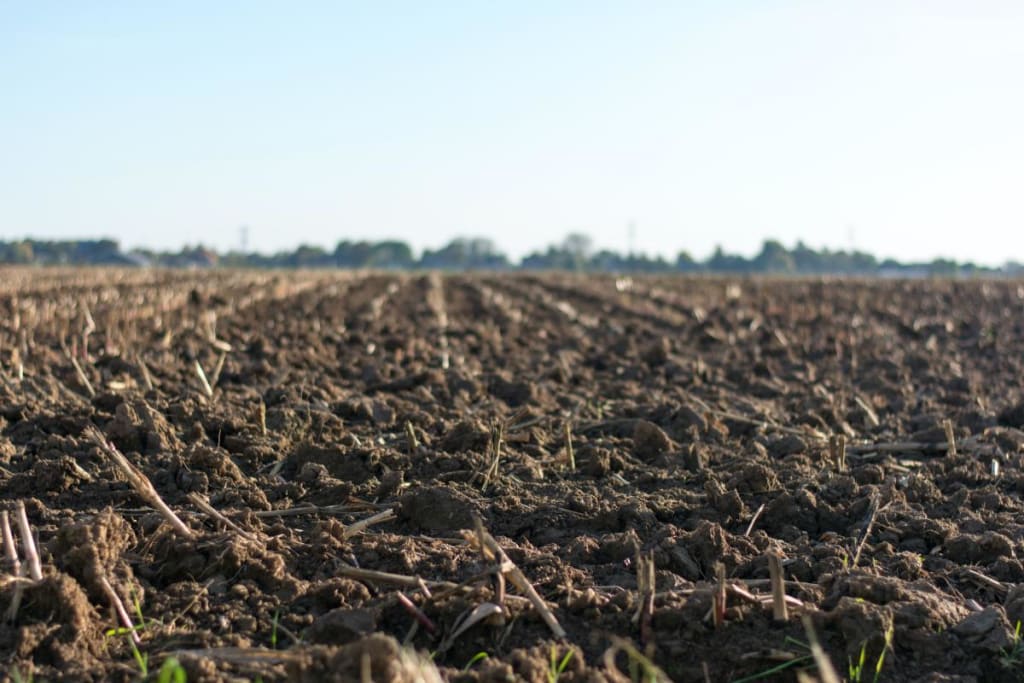7 Things To Do To Increase Land Productivity
Increase Land Productivity

Owning land is an investment in potential. Whether your land is utilized for agriculture, forestry, conservation, or any other purpose, maximizing its productivity is key to both economic success and environmental stewardship. Fortunately, there are several strategies you can employ to enhance the productivity of your land. In this article, we'll explore seven Things To Do To Increase Land Productivity:
1. Soil Enrichment and Management:
The foundation of land productivity lies in the health of the soil. Conduct soil tests to determine its nutrient composition and pH levels. Based on the results, implement proper soil enrichment strategies such as adding organic matter, using cover crops, and applying targeted fertilizers. Healthy soil promotes robust plant growth and ensures optimal conditions for cultivation.
2. Precision Agriculture Techniques:
Embrace precision agriculture techniques that leverage technology to optimize resource use. GPS-guided equipment, drones, and remote sensing tools can help you precisely manage irrigation, fertilization, and planting, reducing waste and enhancing yield.
3. Diversification of Crops and Livestock:
Monoculture can lead to decreased soil health and increased susceptibility to pests. Consider diversifying your crops or introducing livestock to your land. Crop rotation and integrating livestock into rotational grazing can improve soil fertility, control pests, and create a more sustainable agricultural system.
4. Water Management and Irrigation:
Effective water management is essential, especially in areas prone to drought. Implement efficient irrigation systems that minimize water waste and ensure uniform distribution. Collect rainwater for irrigation and explore techniques like drip irrigation for precise water delivery to plants' roots.
5. Modern Agricultural Technologies:
Stay updated on modern agricultural technologies that can enhance productivity. Hydroponics, vertical farming, and aquaponics are innovative approaches that maximize space and resources while delivering higher yields in controlled environments.
6. Sustainable Forest Management:
For forested land, sustainable management practices are crucial. Implement selective logging techniques to preserve the ecosystem's balance, encourage natural regeneration, and minimize environmental impact. Ensure that timber harvesting is in line with long-term forest health and growth.
7. Erosion Control and Conservation:
Protect your land from erosion through proper conservation practices. Planting cover crops, maintaining buffer zones along water bodies, and installing erosion-control structures like terraces can prevent soil loss, safeguard water quality, and maintain the land's overall productivity.
Benefits of Increasing Land Productivity: Nurturing Prosperity and Sustainability
Enhancing the productivity of your land goes beyond immediate economic gains; it holds the key to fostering prosperity and sustainability on multiple fronts. Whether you're an agriculturalist, a landowner, or an environmental steward, the benefits of increasing land productivity are far-reaching and impactful. In this article, we'll delve into some of the significant advantages that arise from optimizing your land's potential.
1. Enhanced Economic Returns:
One of the most direct benefits of increasing land productivity is the boost in economic returns. Higher yields from crops, timber, or other produce translate into increased revenue for landowners and farmers. This infusion of income not only strengthens individual financial standing but also contributes to local economies and broader agricultural sectors.
2. Food Security and Supply:
Agricultural land productivity is directly linked to food security. By increasing crop yields and diversifying agricultural activities, you contribute to a more stable and resilient food supply. This, in turn, helps address food shortages, reduce dependency on imports, and support global efforts to alleviate hunger.
3. Efficient Resource Utilization:
Enhanced land productivity often involves adopting efficient resource management practices. Whether it's water, fertilizers, or energy, optimizing their use minimizes waste and reduces the environmental impact. This resource efficiency contributes to sustainable agricultural and land management systems.
4. Environmental Conservation:
Surprisingly, increasing land productivity can also be a boon for the environment. When land is used more efficiently, there's less pressure to convert natural habitats for agriculture or development. Preserving biodiversity-rich areas contributes to ecosystem health, which is essential for pollination, soil fertility, and maintaining a balanced environment.
5. Carbon Sequestration and Climate Mitigation:
Certain land management practices, such as reforestation and agroforestry, can aid in carbon sequestration. Trees and plants absorb carbon dioxide, mitigating the effects of climate change. By increasing land productivity through sustainable methods, you're indirectly contributing to climate resilience.
6. Rural Employment Opportunities:
Boosting land productivity often requires skilled labor for tasks like planting, harvesting, and managing operations. This creates employment opportunities in rural areas, reducing urban migration and fostering sustainable livelihoods within local communities.
7. Sustainable Development:
Increasing land productivity aligns with the principles of sustainable development. It balances economic growth with social well-being and environmental stewardship. By embracing practices that enhance productivity while safeguarding natural resources, you contribute to a more sustainable and equitable future.
8. Resilience Against Market Fluctuations:
Economic uncertainties can affect markets and prices. However, a land that's optimized for productivity is better equipped to weather market fluctuations. Diversified operations and efficient resource use provide a buffer against economic volatilities.
9. Educational and Research Opportunities:
Increasing land productivity often involves experimenting with innovative techniques and technologies. This creates a platform for research and education within the agricultural and land management sectors. Sharing insights and knowledge benefits both practitioners and the broader community.
10. Long-Term Asset Value:
A productive piece of land holds higher value in the long run. Whether you're considering selling, leasing, or passing down the land to future generations, its productivity enhances its worth, ensuring a solid foundation for financial stability and growth.
Conclusion: Unlocking Your Land's Potential
Increasing land productivity isn't just about maximizing short-term gains; it's about creating a sustainable and resilient future. By implementing these seven strategies, you can optimize your land's productivity while ensuring its long-term health and viability. Remember that each piece of land is unique, and the strategies you choose should be tailored to your specific goals, location, and environmental conditions. Whether you're cultivating crops, managing forests, or practicing conservation, these steps provide a roadmap to harnessing your land's full potential and contributing to a more productive and sustainable future.
About the Creator
Millennial girl
I find joy in exploring the world around me, both near and far, and am always looking for opportunities to broaden my horizons.
Enjoyed the story? Support the Creator.
Subscribe for free to receive all their stories in your feed. You could also pledge your support or give them a one-off tip, letting them know you appreciate their work.






Comments
There are no comments for this story
Be the first to respond and start the conversation.